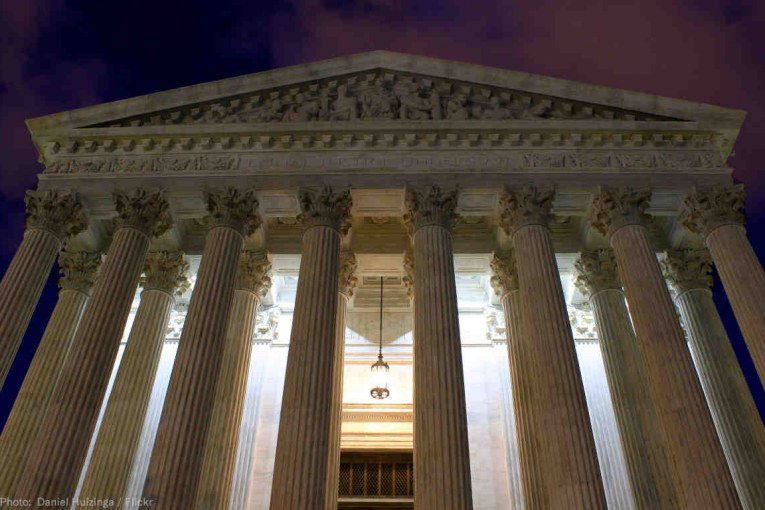
 By Nora Dahl
By Nora Dahl
WASHINGTON, DC – The U.S. Supreme Court this week, in a 6-3 ruling, made it far more difficult for inmates to exercise their fundamental constitutional right to adequate trial counsel—dissenting justices called the decision “perverse” and “illogical.”
The court’s decision eliminated a prisoner’s critical capacity to show that incompetent trial counsel resulted in a wrongful conviction or sentence in state court.
The Supreme Court overturned two lower-court rulings of Arizona death row inmates, holding that federal courts cannot consider evidence supporting claims of ineffective assistance of trial counsel unless it has already been presented in state court—even if the evidence was not provided in state court because state-appointed post-conviction attorneys were inadequate.
In the case at court, despite strong evidence that he did not commit the crime for which he was convicted and condemned to death, the verdict in Shinn v. Ramirez and Jones upholds Barry Jones’  conviction, SCOTUS decided.
conviction, SCOTUS decided.
It also overturns a court of appeals decision that would have given David Ramirez a chance to submit compelling evidence of intellectual handicap and difficult childhood trauma that otherwise would have overturned the death penalty.
Justice Sonia Sotomayor, with Justice Stephen Breyer and Justice Elena Kagan, wrote in dissent, calling the court’s decision “perverse” and “illogical.”
Sotomayor argued the Supreme Court’s decision “restricts the federal courts’ ability to protect” the Sixth Amendment right to effective assistance of counsel at trial, and that “many people who have been convicted in violation of the Sixth Amendment face incarceration or even execution with no significant opportunity to vindicate their right to counsel.”
The justice said the court’s judgment “makes the Sixth Amendment’s safeguards illusory.”
Robert Loeb, an attorney for the respondents, charged, “Today is a sad day. It is tragic for Barry Jones, who remains in prison notwithstanding evidence which the district court determined undercut the murder charge against him—evidence showing that the conviction was based on assertions that were scientifically untrue.”
Loeb added, “It is also tragic for David Ramirez, who faces the death penalty with no court to hear the powerful mitigating evidence (of his intellectual disability and the abuse he suffered as a child) that would have prevented the imposition of the death penalty.
“The court’s ruling leaves the fundamental constitutional right to trial counsel with no effective mechanism for enforcement in these circumstances. The court’s recent decision in Martinez v. Ryan provided a critical federal forum to protect those central constitutional rights. As the Court itself admits, today’s decision guts Martinez and renders the review promised by the Court (less than ten years ago) meaningless,” Loeb said.
“I call on Congress to immediately fix the problem the court has created today,” said Loeb.
He explained, “It means that a federal court can have evidence that someone, like Barry Jones, did not commit the crime supporting the death sentence, but that the court then is helpless to offer any relief. The decision misreads the federal statute, produces untenable results never envisioned by Congress, and amounts to an assault on basic fairness in the criminal justice system.”
